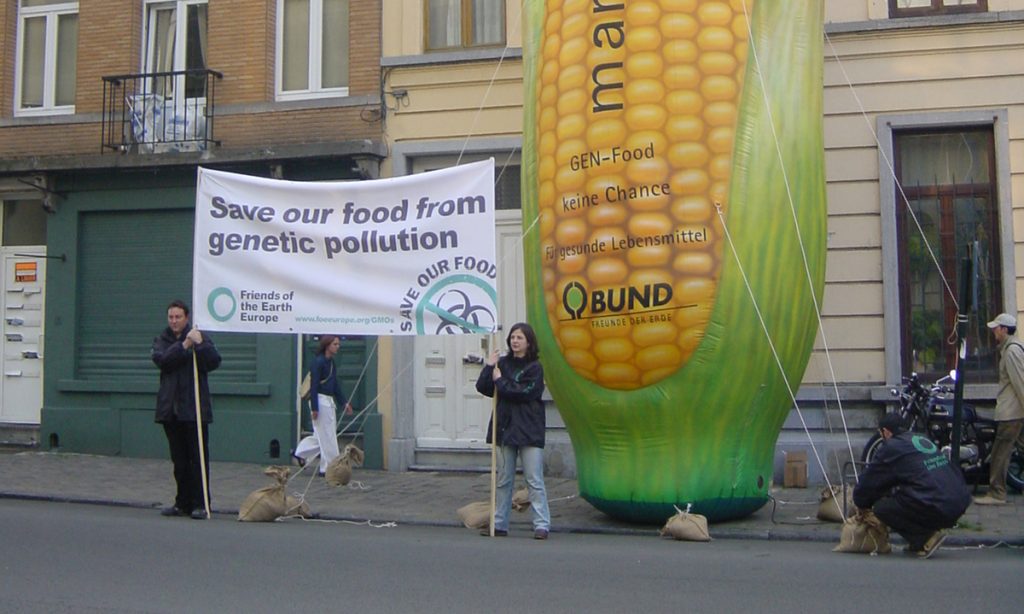Brussels, 26 March, 2007 – Environment groups are this week appealing to the European Parliament to protect organic farming from contamination by genetically modified crops. MEPs will vote this Thursday on whether a new EU law should allow GMOs in organic food [1,2].
According to Mauro Albrizio, Vice President of the European Environmental Bureau: “Organic farming is the jewel in the crown of European agriculture. The European Parliament should support organic production rather than putting it at risk from contamination by genetically modified crops that citizens don’t want to eat anyway”
Although the use of genetically modified (GM) crops is currently banned in organic production, the new draft law would allow traces of contamination and contains no measures to stop GM crops contaminating organic farms [3].
A large proportion of European citizens are opposed to GMOs in food and crops, and have been so consistently for the past ten years, as confirmed by the most recent EU opinion poll, published in June 2006 [4].
“People buy organic foods in the confidence that they are 100% GMO-free. Opening the farm gate to GMOs in organic food will be going against consumer choice and accepting that big business can contaminate our food and decide what we eat”, said Marco Contiero, senior policy advisor on GMOs at Greenpeace’s EU unit.
Helen Holder, GMO campaigner at Friends of the Earth Europe, added:
“Organic farming is the only farming sector in the EU showing growth. The sector provides quality jobs and a lifeline for rural economies, but it could be wrecked because of the biotech industry’s inability to control its crops. We need strong laws that allow the organic sector to grow the crops and produce foods that European consumers want.”
Environmental NGOs are urging MEPs, the European Commission and Member States to take all necessary measures to prevent genetic contamination. As well as the new law on organic production, strict laws on the commercial growing of GM crops and contamination (‘coexistence’) are urgently needed.
***
NOTES:
[1] Proposal for a Council Regulation on organic production and labelling of organic products (COM(2005)0671 – C6-0032/2006 – 2005/0278(CNS)) [2] EEB, Friends of the Earth Europe and Greenpeace are calling on MEPs to vote for an amendment to the report that was supported unanimously by all political parties in the EP’s Environment Committee:- “In this Regulation, the labelling threshold for GMOs as defined in Directive 2001/18/EC of the European Parliament and of the Council of 12 March 2001 on the deliberate release into the environment of genetically modified organisms shall not apply”. [3] The proposed law, if adopted as such, would allow 0.9% GMO contamination in organic foods. The law only allows this contamination as long as it is “adventitious” and “technically unavoidable”, however there is evidence that the European Commission and other risk managers- under pressure to adopt a lax attitude to contamination- are in fact interpreting the 0.9% threshold to mean “acceptable” contamination. The organic sector currently works to a lower threshold and EU laws must support and enable organic farmers and retailers to maintain existing standards. [4] Eurobarometer study (Gaskell et al., June 2006)







